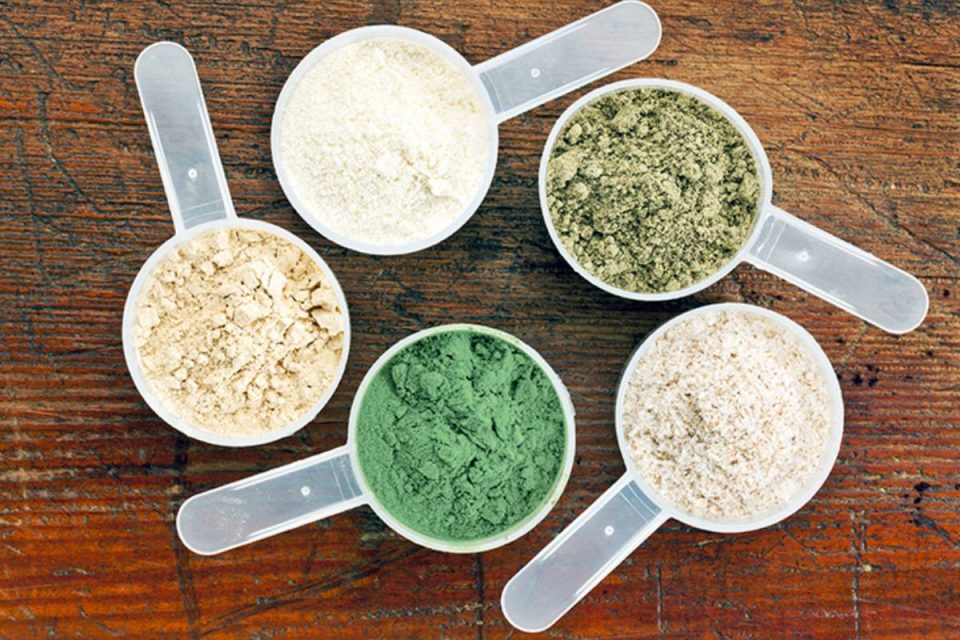Protein is a macronutrient that we need for optimal health and survival. Nutrient is in every cell that our body needs. Proteins are made up of amino acids, and we have to get enough for healthy bones, tissues, and muscles.
Many people supplement with protein, and we often wonder what the pros and cons of doing so might be. It can depend on the type of supplement. For example, there might be different benefits of taking protein pills versus a powder. Our unique health needs also play a role in whether or not it’s beneficial to supplement with protein.
Table of Contents
Understanding Protein
The other macronutrients that join protein are carbohydrates and fat.
There are hundreds of identified amino acids, and 20 make up our bodies’ proteins. Nine are essential. Our bodies can’t make essential amino acids, so they must come from food or supplements.
Protein is vital in many of the most important bodily processes, like digestion. Enzymes regulate all the reactions in our bodies. Enzymes are proteins. You need the macronutrient to grow and repair your muscles, and it even helps your blood clot.
Frequently, people turn to protein supplements if they have certain goals they want to meet, like building muscle, or if they don’t feel they’re getting enough from their diet.
Vegans and vegetarians are two groups that can benefit from protein supplements because they eat fewer foods that are rich in them.
True protein deficiency is fairly rare. Along with impacting vegans and vegetarians, it might also affect people with digestive disorders like Crohn’s or celiac and people over 70. These groups of people might especially think about trying a protein supplement.
Can You Eat Too Much Protein?
As Americans, we often worry whether or not we’re getting enough protein, but in reality, plenty of us could be consuming not just enough but even too much. You would have to significantly reduce your diet to not get enough protein from the foods you eat.
It’s not necessarily going to be harmful to get too much protein, especially if it’s coming from food, but there’s also no additional benefit.
The Pros of Taking a Protein Supplement
If you think you need one, there are upsides to a protein supplement.
For people with gastric disorders, taking a protein supplement, especially one in liquid form that’s easy to digest and absorb, can be helpful.
Other pros of protein supplements include:
- Using a supplement is a convenient approach to meet your nutritional needs, especially if you’re busy and don’t always have time to make snacks and meals.
- A protein supplement can help with your weight goals, whether you want to gain or lose weight. Protein helps you feel satiated or full for longer and can be a better choice than a snack high in sugar.
- If you’ve recently experienced unintentional weight loss because of something like an illness, you can make a higher-calorie protein shake to help you regain the weight.
- You can use a protein supplement with all the nine essential amino acids your body cannot make.
- For some people, something like a protein supplement or shake is more palatable than high-protein foods.
The Cons of Taking a Protein Supplement
So what are the downsides?
- While having too much protein from diet alone isn’t likely to cause any side effects, if you get too much protein from something like a shake or powder, you may experience issues like cramps, nausea, and headaches.
- You can also experience bloating, and some experts believe too much protein makes your kidneys have to work harder, causing complications if you already have a kidney problem.
- Some protein supplements have added sugars and ingredients that you might want to avoid.
- You could gain weight from supplementing with certain types of protein, like powders or shakes.
If you are interested in supplementing with protein, try to choose the right product. For example, if your goal is weight maintenance and getting just a bit of extra protein daily, you might want to use a pill supplement, like a bone broth protein capsule.
If your goal is weight gain or you’re trying to gain muscle, you might want higher-calorie powders and shakes, but don’t overdo it.
Unless you have an underlying health concern or condition or unique goals, most people’s protein needs can be met through just their food

